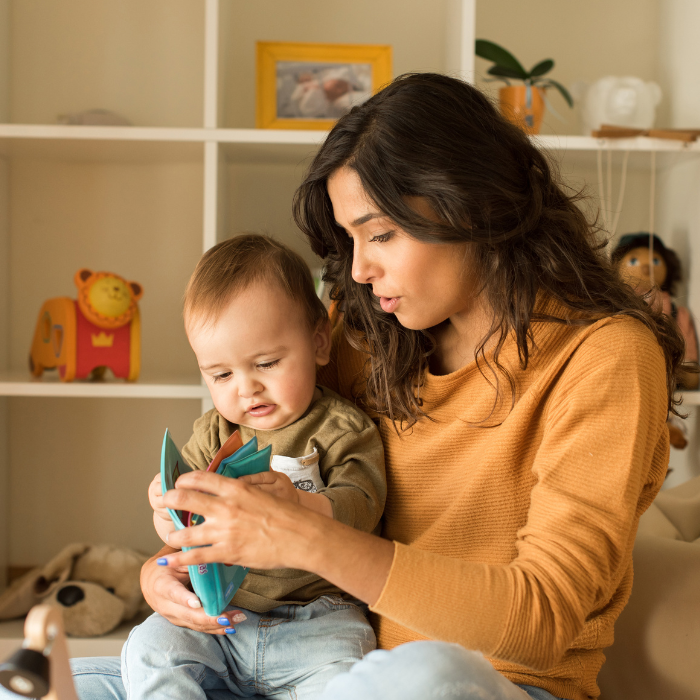
Children learn through play, and engaging in a wide variety of regular daily play activities will help their growth and development.
Play is an important way for a child to grow physically, socially, emotionally, and spiritually, all of which are vital for their future health and wellbeing. Children are naturally curious and active, and movement through play is the way they learn about their new world. Most importantly, play should be fun!
Establishing regular daily movement from birth (for example, through tummy time for children who cannot walk and daily active play for children who can walk) will help to provide a platform from which children can learn more complex tasks, such as running, climbing trees, riding a bike, swimming, or playing.
Regular active play helps develop a child’s physical systems, such as muscle and bone growth, coordination, balance, and basic movement competence skills. Toddlers and preschoolers should be encouraged to do at least three hours of physical activity each day at any intensity – and for preschoolers, at least one hour of this should be energetic play.
Active play also provides the opportunity to develop social skills and emotional confidence, self-esteem, resilience. These life skills are developed with the guidance of key caregivers and will help give children the motivation and confidence to try new physical activities. A nurturing environment where children are shown love and support, and where their whānau/family cultural beliefs and values are considered, is vital to the child becoming and remaining active.
Parents, whānau/families, and other caregivers can help their under-fives learn social and emotional skills by demonstrating active, healthy living and other desirable behaviours, such as regular physical activity, sharing, taking turns, and compromising.
BUILDING RESILIENCE AND ENCOURAGING CREATIVITY THROUGH EXPLORATION
Active play encourages creativity, imagination, and exploration. Help and guidance along the way will support children to learn about decision-making and build their resilience. The ideal situation is to let children take and manage risks so they feel independent and able to play freely and explore, while under adequate supervision to ensure their safety.
If all children (including those with disabilities) experience controlled risk when they are younger, they are more likely to understand it and less likely to take dangerous risks when they are older. It is about balancing safety and risk with the potential for growth and development through experimentation. Appropriate risk-taking, such as trying new things like sitting upright, standing, walking, and riding a bike, will change as the child grows and must be learned through trial and error.
DEVELOPING MOVEMENT COMPETENCE AND CONFIDENCE
- Movement encourages the brain to develop and strengthen its neural pathways. In the first five years of life, these connections are made predominantly through land and water-based play.
- Small muscles, such as those in the fingers, are used for delicate skills (picking up and manipulating small objects, painting, scribbling, and drawing), and larger muscles of the arms and legs are used for more strenuous movements, such as crawling, sitting up, and walking.
- Throughout life, people will use their muscles on a daily basis, so it is really important that these are developed appropriately before the age of five. Repetitive use makes these muscles stronger
Ideas for active play
All young children should be encouraged to be physically active to the extent appropriate to their ability and age. It is important to note that children will develop different abilities at different ages. Here are some low-cost or free options for encouraging movement and active play.
BABIES
- Play with your baby and encourage regular floor-based play, on a safe surface (indoors or outdoors).
- Encourage babies to reach, grasp and hold by placing toys just out of reach.
- Roll a ball in front of your baby to encourage them to lift their head to see and reach for it.
- Supervised water-based play is ideal for getting babies confident in water.
INFANTS
- Play with your infant and encourage them to move and explore on the floor – they will crawl and push themselves into a sitting position independently when they are ready.
- Allow infants to pull themselves up on and move around objects, such as coffee tables.
- Hold hands and walk with the infant when they are ready and independently walking by themselves. Do not force their arms higher than shoulder height.
- Encourage infants to track movements with their eyes by blowing bubbles.
- Supervised water-based play is ideal for getting infants confident in water.
- Introduce taonga puoro (traditional Maori musical instruments).
TODDLERS AND PRESCHOOLERS
- Play interactive games, such as Simon Says.
- Encourage play in an indoor playhouse made from cardboard boxes or chairs and bed sheets or an outdoor play house made from old wood, sticks and grass.
- Supervised water-based play is ideal for getting toddlers and preschoolers confident in water and understanding basic water safety principles.
- Introduce Mori activities, such as waiata, haka and poi as a way of sharing prkau (ancestral knowledge), or traditional practices like raranga (weaving).
- Introduce Maori games, such as tirkau (traditional stick game), tiringaringa (hand games), ptaka (spinning top).
- Encourage active movement habits by walking to the shops, the park, to kindergarten, the church or marae or places of cultural significance (for example awa (river), roto (lake), maunga (mountain), ngahere (forest).
- Visit a local playground or park.
- Encourage upper body strengthening activities, such as human wheelbarrow walking, swinging on monkey bars and playground rings, and climbing ladders.
- Encourage walking barefoot on different textures, such as sand, bark, grass or concrete.
- Collect pinecones in the bush, leaves from a park or native resources, like kawakawa leaves in the ngahere or pipi at the beach.








